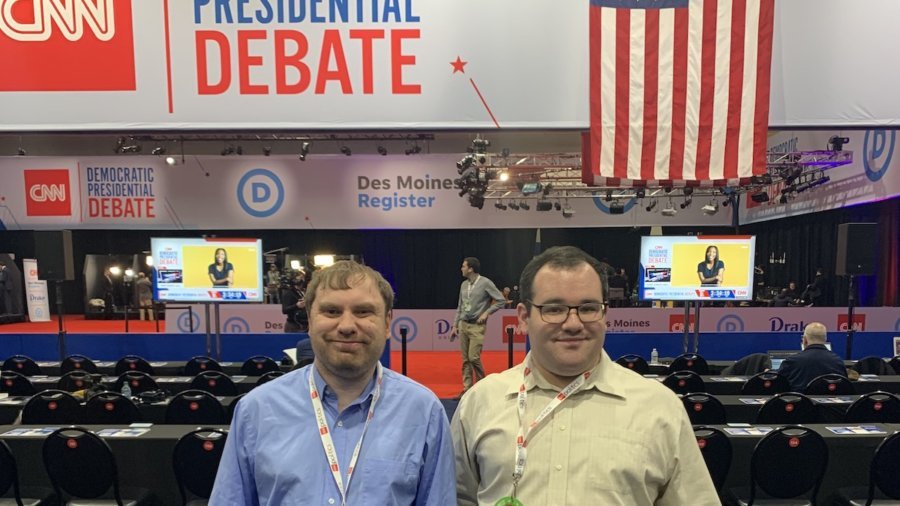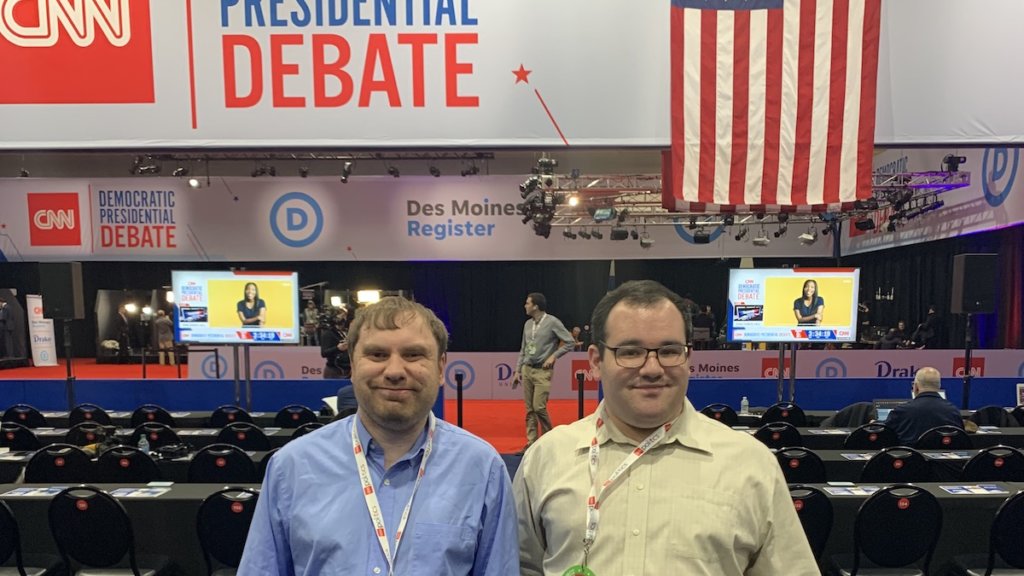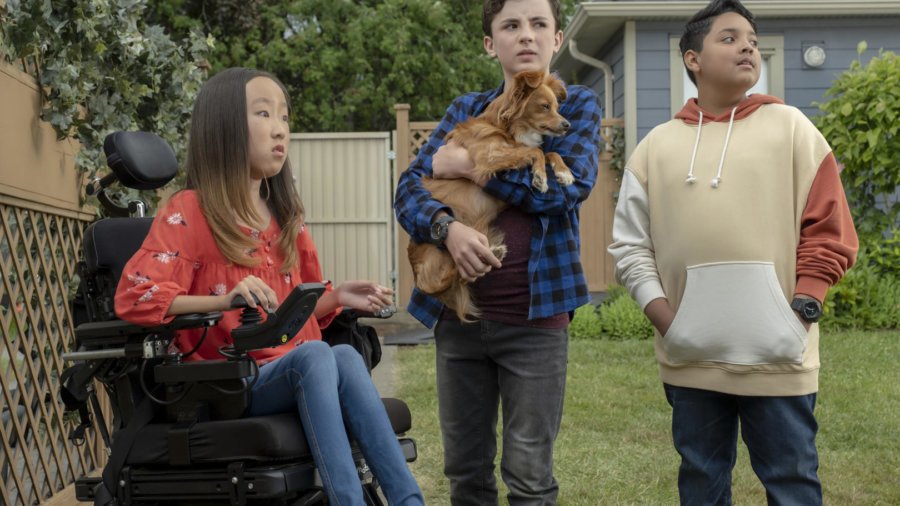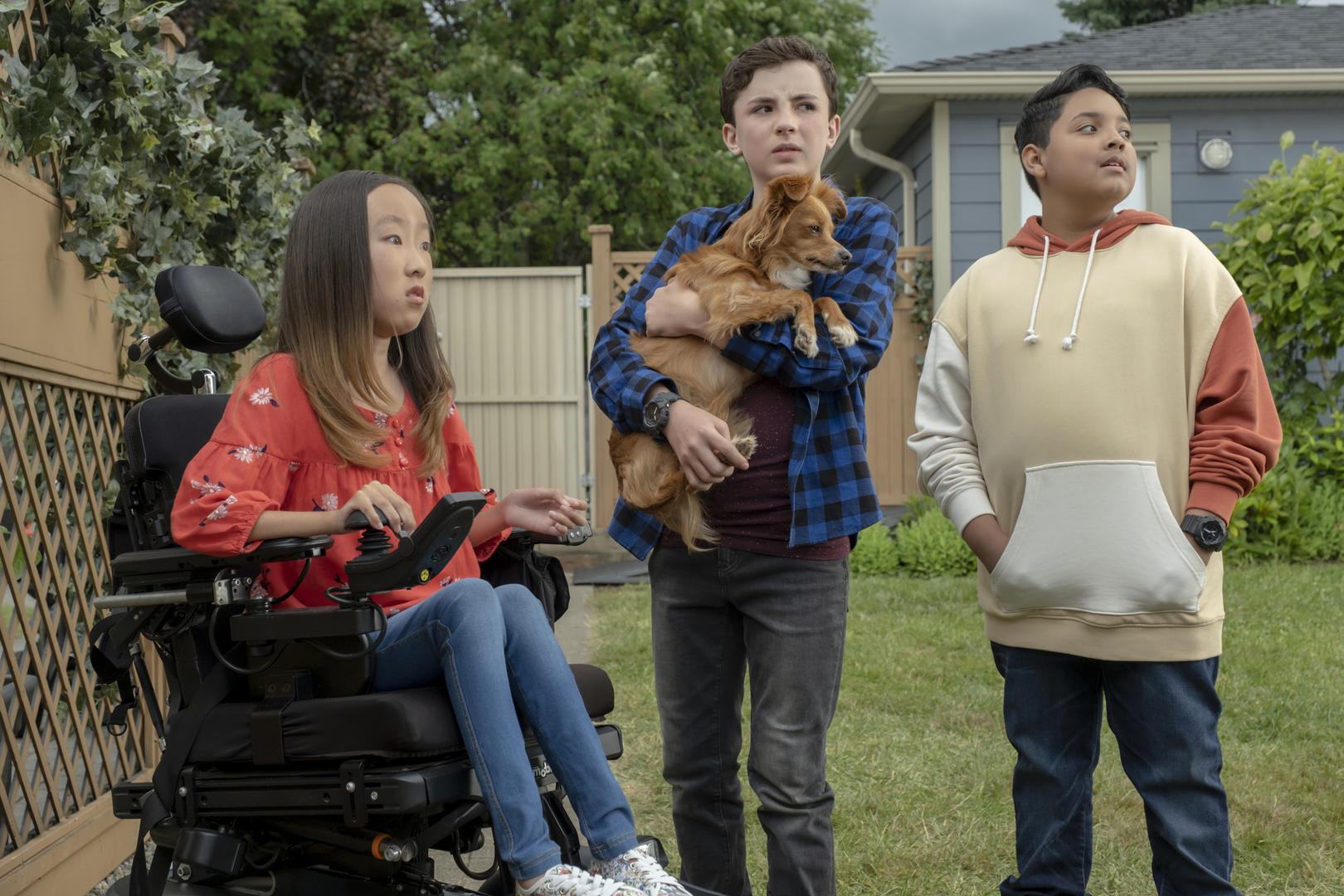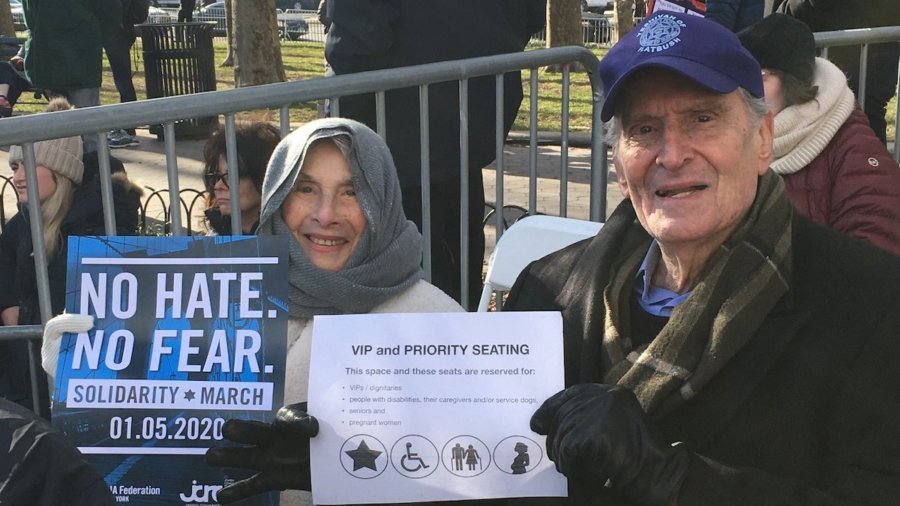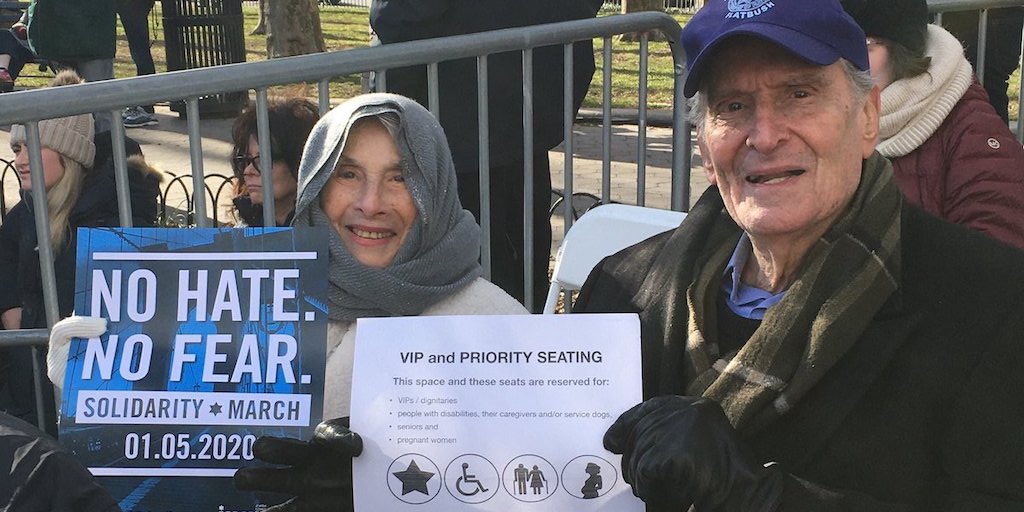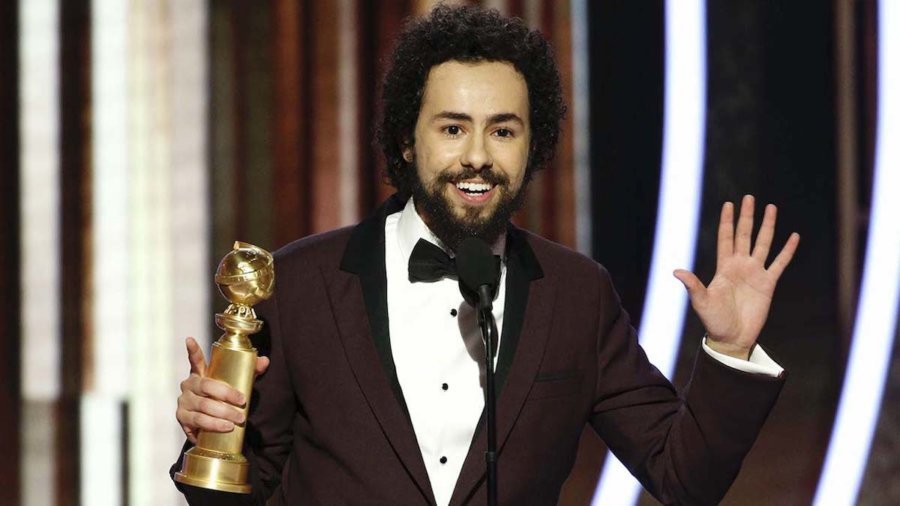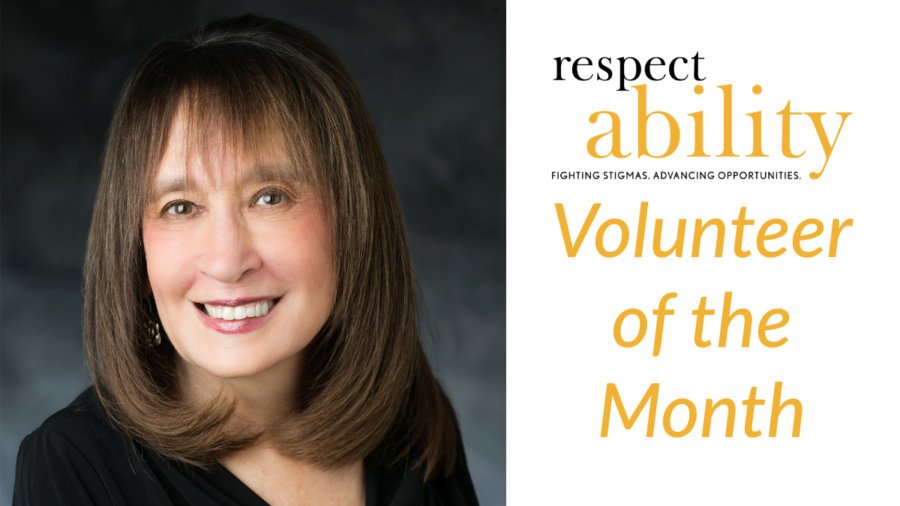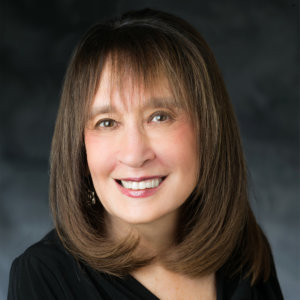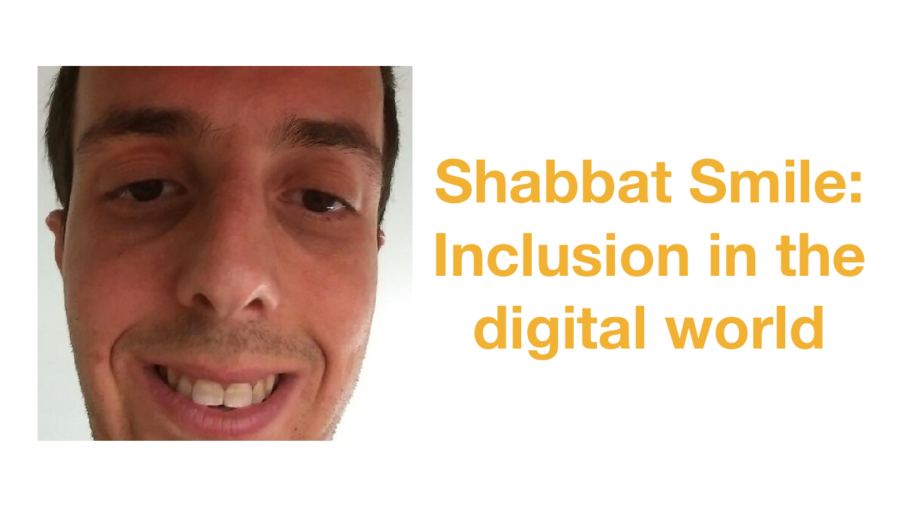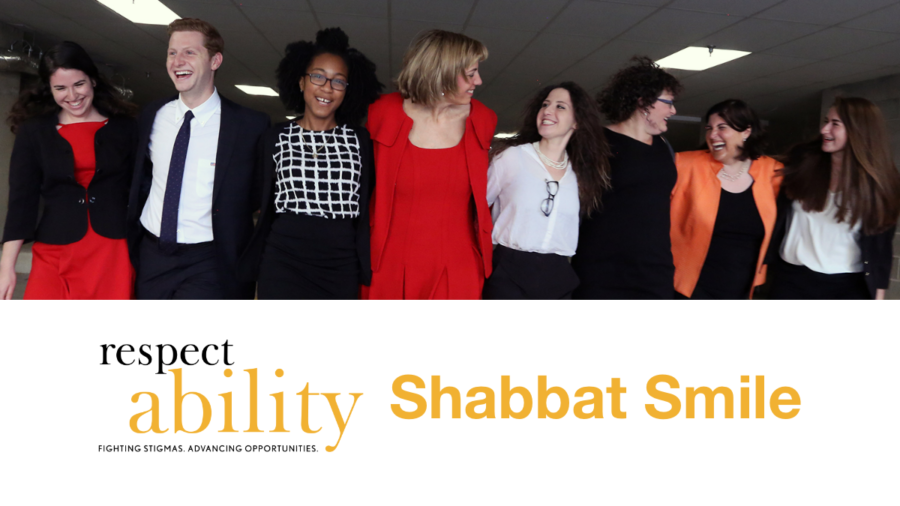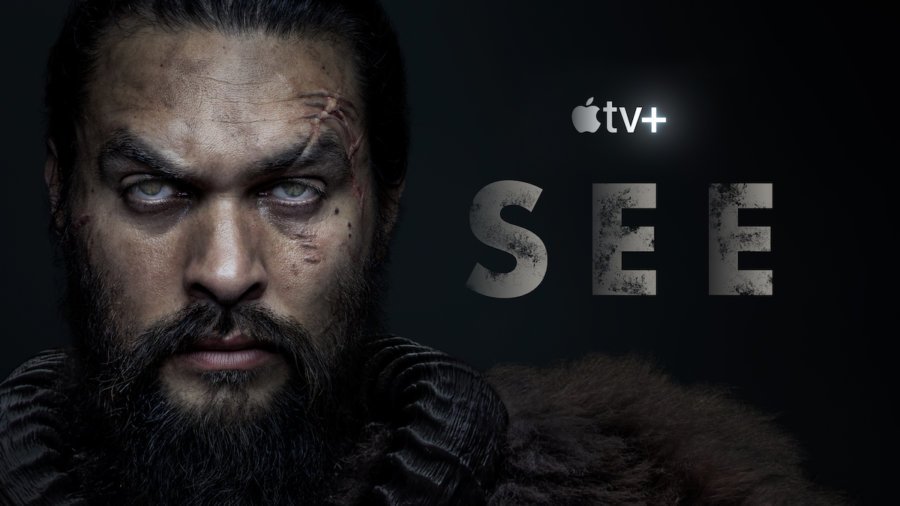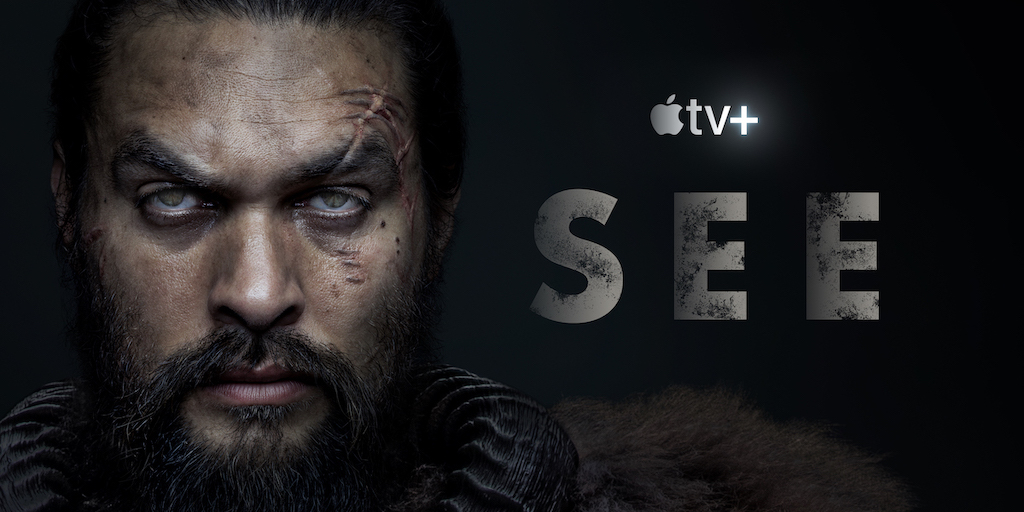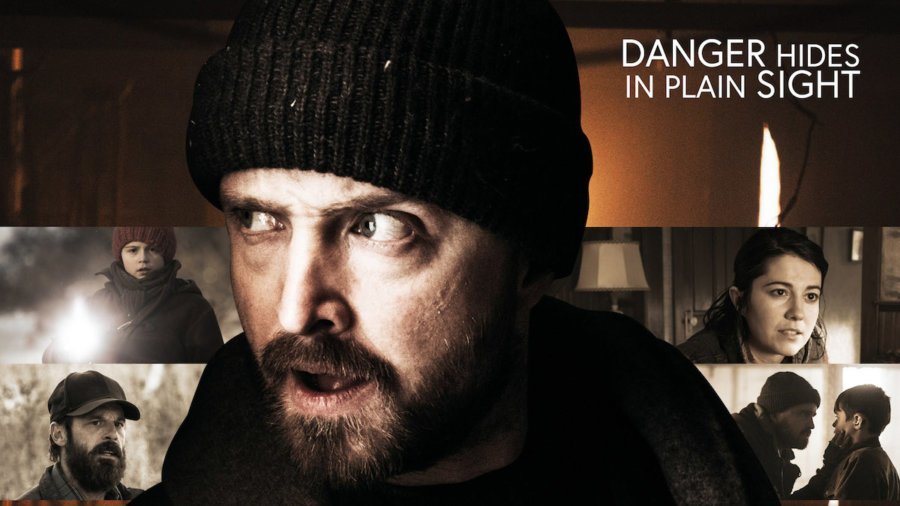Des Moines, Iowa, Jan. 14 – While many of the presidential candidates are focusing on how to help people with disabilities, several self-advocates currently are in Iowa showing that people with disabilities are capable of doing the work, if only they are given access to do so.
Eric Ascher and James Trout, both on the Autism spectrum, and Ila Eckhoff, who has cerebral palsy, are ensuring that the presidential candidates do not forget the one-in-four adults in America who have a disability by reporting on the campaigns’ efforts for The RespectAbility Report, an online publication at the intersection of U.S. politics and disability.

Eric Ascher and James Trout, who are both on the Autism spectrum, interviewed several candidates while in Iowa, including Sen. Amy Klobuchar (pictured above). This is Trout’s second campaign season doing so.
Ascher is the Communications Associate of RespectAbility, a nonprofit organization that fights stigmas and advances opportunities so people with disabilities can participate fully in all aspects of community. Ascher’s motivation for engaging the candidates is not only professional but also personal:
“I know firsthand how hard it is for qualified people with disabilities to find jobs. I spent two years after college looking for work. I honestly believe that stigma around disability played a major role in that fact. What candidates say can make a huge difference in the stigma people with disabilities face, and I am thrilled to be in Iowa so I can help them know how they can be good allies to the disability community.” [continue reading…]


